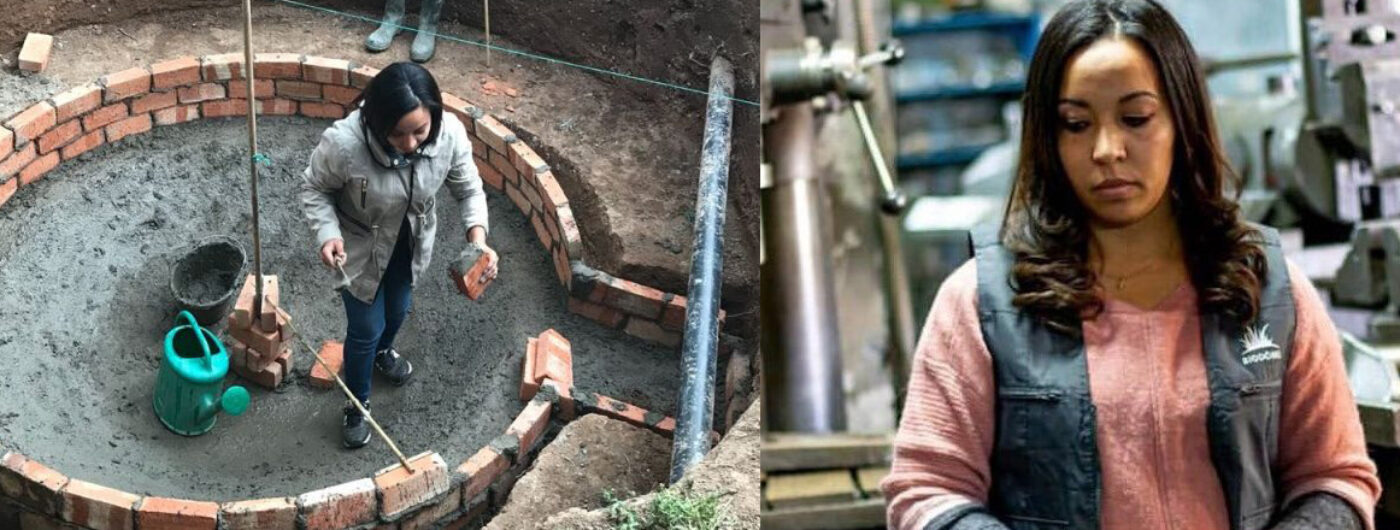
Building a Green Future for Morocco and Beyond
Doctor Fatima Zahra Beraich is no stranger to breaking new ground. In her roles as a chemical engineer, entrepreneur, and mother, she has dedicated her life to improving her community, in Morocco and beyond.
Fatima set up her company, Biodôme du Maroc, in 2013 whilst completing her chemical engineering PhD. She states that her interest in chemistry “allowed [her] to develop an innovation mindset” from a young age – she tried to submit her first patent at only seventeen years old. This remarkable drive guided her early interest in sustainability, which led to her focusing on agricultural engineering because she knew that “as a developing country, Morocco needed it.”
Sustainability is an increasingly prominent issue in Morocco, especially as environmental degradation is estimated to have an impact of up of 3.5% on Moroccan GDP. For Fatima, a mindset shift is required to build momentum for green initiatives in Morocco. She helps Moroccans to “instead of seeing waste as waste, [to see it] as raw material, as material for recovery and to see the possibilities for generating income.”
Biodôme is built on a revolutionary idea: a better designed waste digester that uses agricultural plant and livestock waste. This system produces compost and gas, which are respectively used on fields as organic fertilizer and to run farm equipment and generators, allowing farmers and others to improve both their waste management and reduce their greenhouse gas production. Now the proud owner of several patents, Biodôme continues to go from strength to strength, and has pivoted to “create a production line of small local composting machines for households.” Having rolled out Biodôme across Morocco, Fatima is keen to expand to other countries, including Tunisia and Egypt.
Her drive extends beyond developing her business: she is also a passionate advocate for her community. “I work on local solutions, so 100% Moroccan solutions that are made in Morocco”, that directly benefit Moroccans, she states. This grassroots approach has also led to Biodôme developing a training programme to allow young people to become self-employed and install units for others, creating a ripple effect that has improved youth employment and Biodôme’s reach. As well as benefiting young job seekers, the Biodôme composter has become popular with women “who have had simplified, popularised, targeted training and who can now produce their own compost [at home], sell it and generate income continuously.”
Fatima is passionate about the role of women, as entrepreneurs, in her industry, and throughout Morocco. Discussing the challenges she has overcome, often as the only woman managing a rural agricultural site, she states “we know very well that we [women] will continue and although I had to face several obstacles, in the end, I succeed, I reach my goals, I finish my projects despite the constraints and the problems that I encounter. It all depends on the personality of the woman, the degree of desire to fight [and] to move forward.”
The proud winner of the Best Woman Entrepreneur of the Year in 2018 and at the COP22 in 2016, she is modest about her achievements. When asked about her position as a female entrepreneurial role model, she clearly states
“I did not see myself as a woman entrepreneur, I simply saw myself as an entrepreneur, with the objective of carrying out a project that addresses environmental and economic issues.”
In 2015, she attended the Union for the Mediterranean’s WOMED two-week training programme, and credits it with instilling the energy in her to grow her company: “I went through several difficulties, several problems and if I had not received this energy, I think that I could not have continued and completed what I was doing until now.”
Her experience in the programme reinforced her commitment to developing her business, others, and herself. The gender equality focus of the programme has allowed her to better “identify, determine several values and rights that were not clear [to me]. Values that we [the attendees] knew, but that we could not express or defend as we needed to.” Fatima also praised the community spirit the programme created: “We saw ourselves in other women. We saw ourselves in the problems that other colleagues were experiencing. We later realised that we all had problems in common, even though we come from different cultures.”
Fatima still keeps in touch with her WOMED cohort, and is adamant that her experience in the programme was transformative. WOMED “is magnificent: as soon as we bring together women leaders… we exchange… Just that was enough for us to grow stronger, [it gave us] a lot of strength to continue, to move forward, to keep this connection, this bond that continues until now. The secret is… to bring together women who have the same mindset, the same vision, the same courage, who are fighting in their countries.”
About WOMED
The WOMED programme was designed to strengthen the capacities of high-potential young women aged between 25 and 35 years old from the Southern Mediterranean countries by building their leadership skills through an intensive gender equality-focused training programme. The WOMED project was labelled by the 43 member states of the Union for the Mediterranean (UfM) in 2015, contributing to the implementation of the UfM Ministerial Declarations on Strengthening the Role of Women in Society and was part of the UfM Secretariat’s global strategy to promote concrete projects for women empowerment and gender equality in the Euro-Mediterranean region.
- Discover Lina Khalifeh’s story, another entrepreneur who went through the WOMED training programme.
More on the UfM’s action for gender equality and women empowerment
- Discover the work carried out by the Social & Civil Affairs division.
- Learn more about groundbreaking data on this topic, through the first-ever Intergovernmental Monitoring Mechanism on Gender Equality in the Euro-Mediterranean Region.
